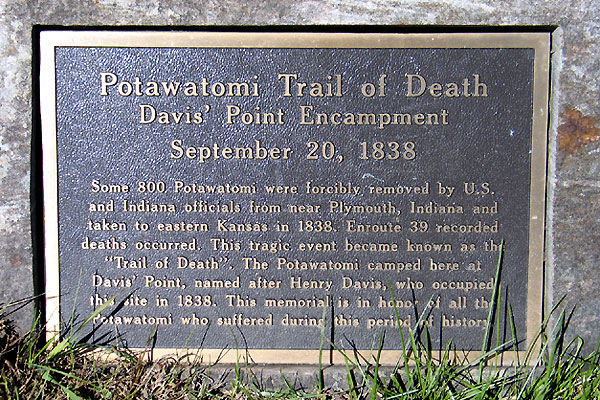
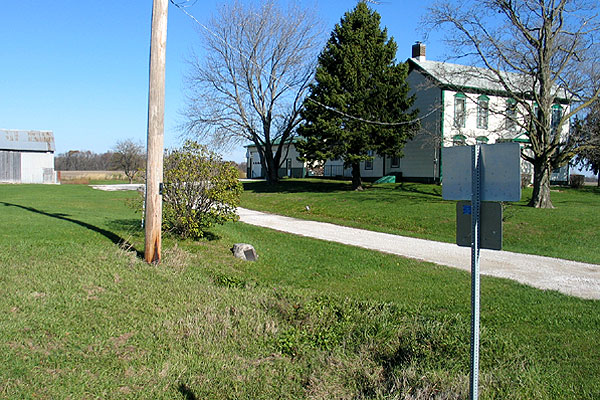

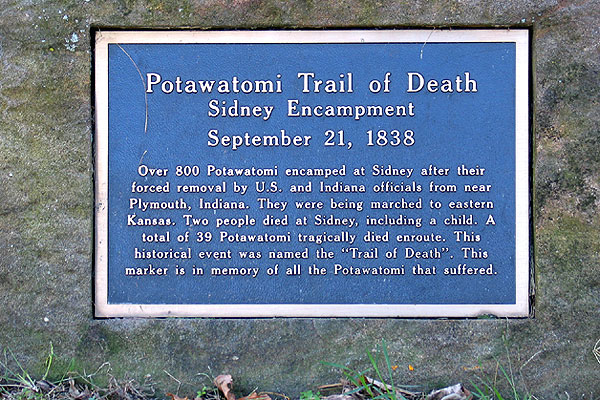
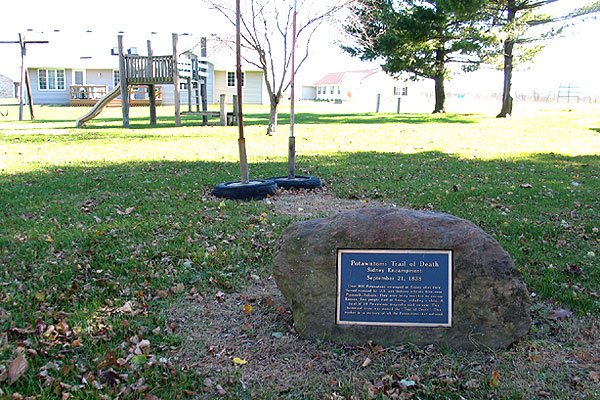
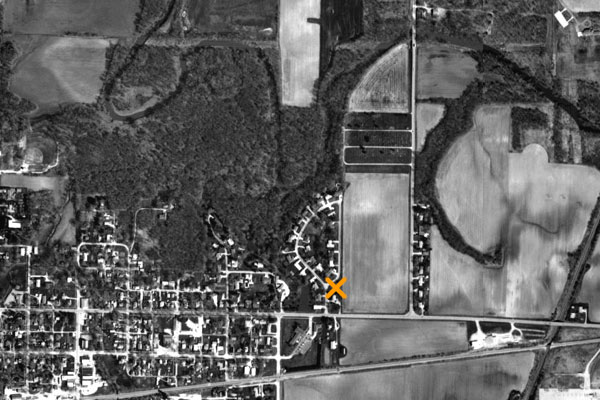
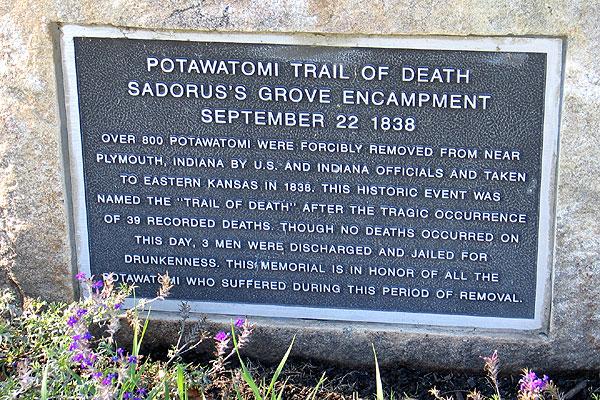
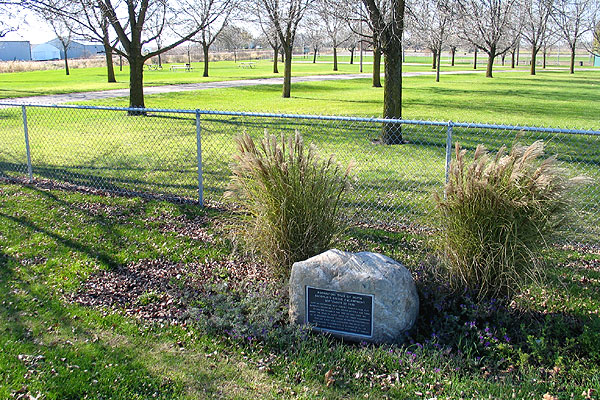
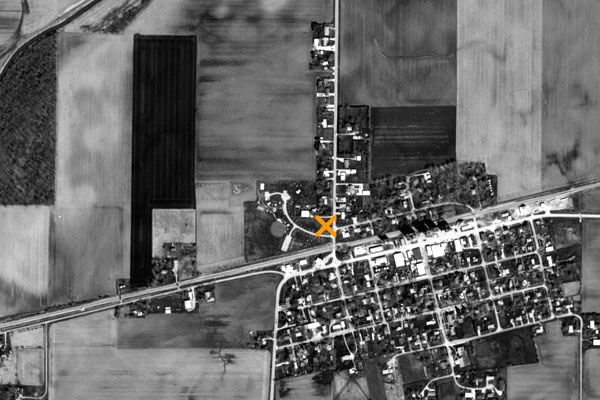
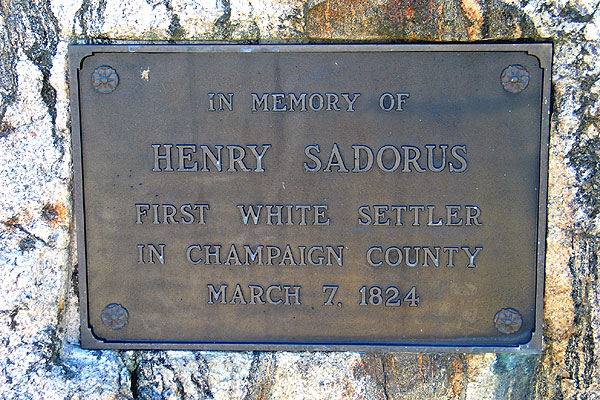
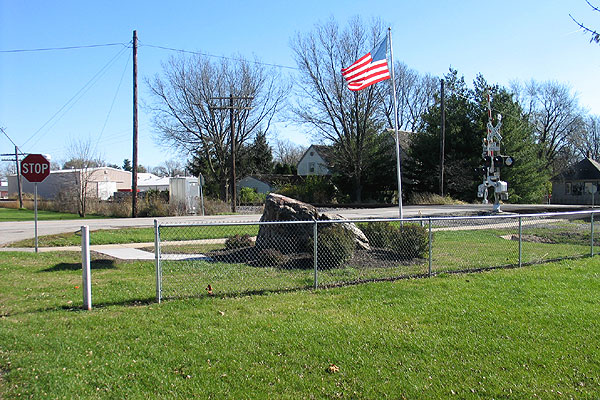
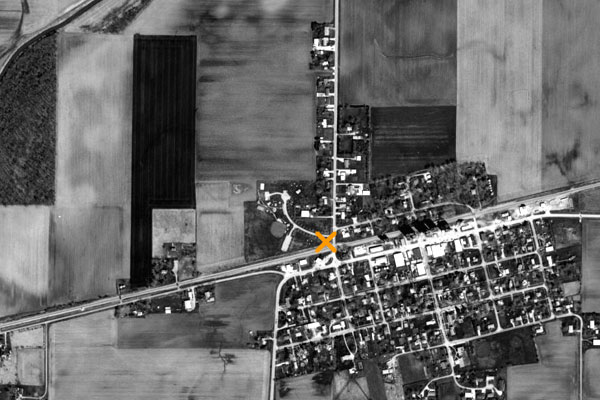

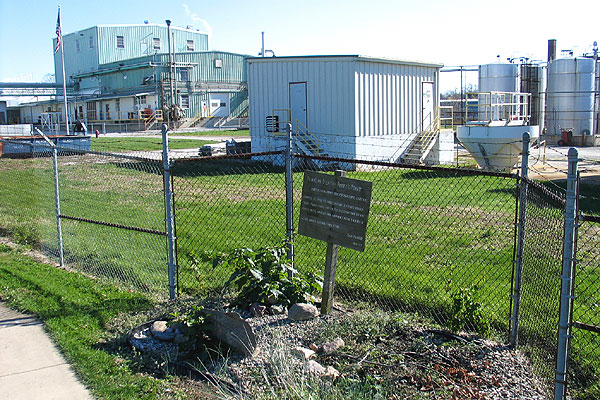
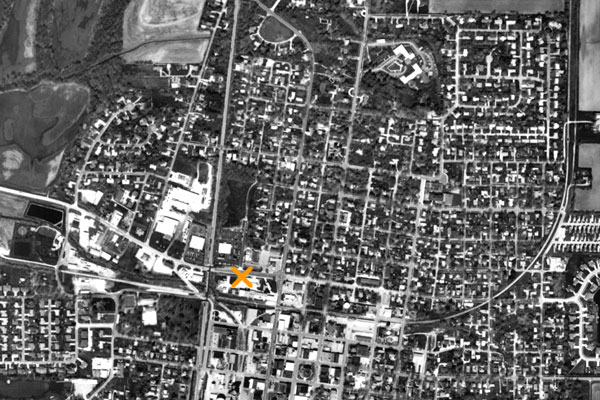

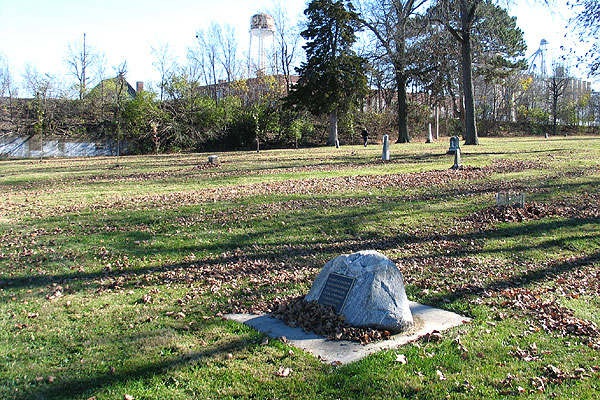
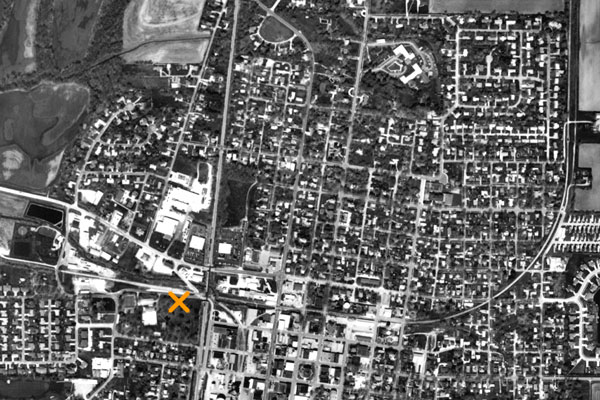

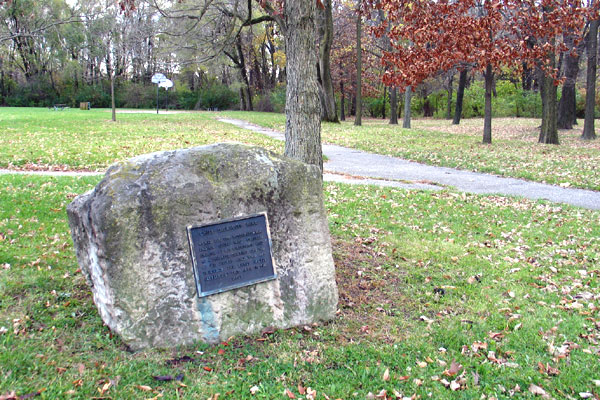
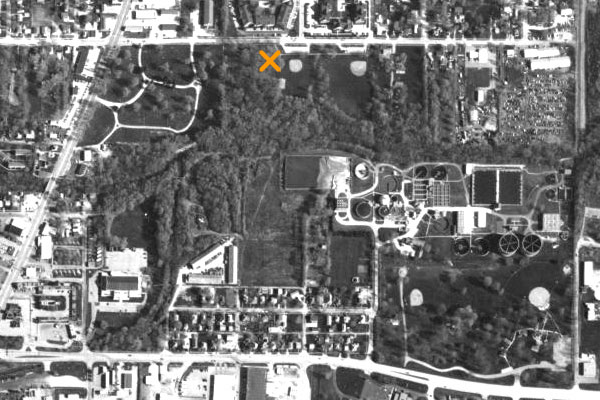
Thursday, 20th Sept. >> At 3 o'clock we were up and busily preparing the discharge of the volunteers. At sun rise they were mustered and marched to Head Quarters, where, after being addressed for a few moments by the General in command, they were discharged and paid off. Sixteen of the mounted volunteers, upon a requisition of the Conductor of the emigration were retained in service and are now under the immediate charge of Ensign Smith. At 9 o'clk. a few hours before which an elderly woman died, we prepared for our march. We left the camp at half past 9, and reached our present encampment at about 2 P.M. During the march of the party, Gen. Tipton who has heretofore been in command of the volunteers, and superintended the removal of the present emigration, took his leave, and left us in charge of the Conductor, Wm. Polke, Esq. While on the march a child died on horseback. A death has also occurred since we came into camp this Evening. We are now encamped at Davis's Point, a distance of ten miles from the camp ground of yesterday. To-morrow we expect to reach Sidney, which is reported to be a good watering place. <SOURCE> |
Friday, 21st Sept. >> Left Davis's encampment at half-past 9. At a little before 2 we reached Sidney, near the spot selected for encampment. The health of the Indians is the same - scarcely a change - the worst of the cases in most persons proves fatal. Physician reports for yesterday, "their condition somewhat better. There are yet fifty sick in camp - three have died since my last." The farther we get into the prairie the scarcer becomes water. Our present encampment is very poorly watered, and we are yet in the vicinity of timber. A child died since we came into camp. This morning before we left the Encampment of last night, a chief, Muk-Kose, a man remarkable for his honesty and integrity, died after a few days' sickness. Distance traveled to-day 12 miles. Forage not so scarce as a few days ago. Bacon we occasionally procure - beef and flour, however constitute our principal subsistence. <SOURCE> |
Saturday, 22nd Sept.
>> At 8 o’clock we left our Encampment, and entered the Prairie at Sidney. The day was exceedingly cold. The night previous had brought us quite a heavy rain, and the morning came in cold and blustery. Our journey was immediately across the Prairie, which at this point is entirely divested of timber for sixteen miles. The emigrants suffered a good deal, but still appeared to be cheerful. The health of the camp continues to improve – not a death has occurred to-day, and the cool bracing weather will go far towards recruiting the health of the invalids. A wagoner was discharged to-day for drunkenness. Dissipation is almost entirely unknown in the camp. To-night, however, two Indians were found to have possessed themselves of liquor, and become intoxicated. They were arrested and put under guard. Some six or eight persons were left at Davis’s Point this morning, for want of the means of transportation. They came in this evening. We are at present encamped at Sidoris’s Grove, sixteen miles distant from Sidney. Water quite scarce. <SOURCE> |
After the Fielders and Tompkinses, the next family to settle in Champaign County with any degree of permanence was that headed by Henry Sadorus, who continued to reside on the Okaw, in the southwestern part of the county, for a period of fifty-four years. He gave his name to the grove and the township, as well as the village in the extreme northeastern past of the latter. Mr. Sadorus had served as a soldier in the War of 1812, and about 1818, then thirty-five years of age, immigrated with his family to Indiana. He was a natural tradesman and money-maker, and had amassed quite a capital for the times, when he started for the Vermilion country, with his wife and six children, in 1824. The eldest of the children was a lad of fourteen, who assisted his father in managing the five yoke of steers which drew the prairie wagon toward the Okaw. It was in the fall of the year, and when he discovered an abandoned cabin on the southeast quarter of Section 1, Township 17, Range 7, he took possession of it and the family commenced housekeeping. He remained a squatter until December 11, 1834, when he entered the quarter section of at the Vandalia land office. His son, William, at the same time, entered the eighty-acre tract adjoining on the north, which were the first entries of land in Sadorus Township. <SOURCE> |
Sunday, 23rd Sept.
>> Left our encampment at 9 o’clk. having been detained for an hour at the request of the Rev. W. Petit, who desired to perform service. The day was clear and cold. Our way lay across another portion of Grand Prairie, which, as was the case yesterday, we found without timber for fifteen miles. Physician reports the health of the camp still improving. “The number of sick” the report says “is forty. There have been two deaths since my last report, and four or five may be considered immediately dangerous.” A child died early this morning. One also died on the way to our present Encampment. Distance traveled to-day fifteen miles. We are now at present encamped on the Sangamon river, along the banks of which our route to-morrow lies. Subsistence, beef and flour – better, however, than usual. <SOURCE> |
Monday, 24th Sept.
>> At 9 this morning we left Pyatt’s Point (the encampment of yesterday) and proceeded down the Sangamon river fifteen miles, to the place of our present Encampment, Sangamon Crossing. Physician reports “there have been two deaths since my last, and the situation of several of the sick is much worse. I would recommend that twenty-nine be left until to-morrow.” At the suggestion of Dr. Jerolaman twenty-nine persons were accordingly left behind with efficient nurses. They will join us to-morrow. We find a good deal of difficulty in procuring wagons for transportation – so many of the emigrants are ill that the teams now employed are constantly complaining of the great burthens imposed upon them in the transportation of so many sick. Subsistence and forage the same as yesterday. A child died during the evening.
<SOURCE>
Tuesday, 25th Sept. >> To allow the sick left at Pyatt’s Point yesterday time to join us, and to give the emigrants generally a respite, and to bring up the business of the emigration, it was determined to remain in camp to-day. The baggage wagons were weighed and reloaded during the day and the matters of the emigrants made more comfortable. Sometime in the afternoon the sick left at the encampment of yesterday arrived. Directly after their arrival a woman among the number, died. The rest were but little if any improved. A child also died this evening. The farther we advance the more sickly seems the character of the country. It is sometimes very difficult to procure provisions and forage owing to the general prostration of the husbandry… Most of the Indian men were permitted to go on a hunting excursion to-day. They brought in a considerable quantity of game. <SOURCE> |
Our early settlers around and in these timber belts and groves well remember many of their Indian visitors by name, and the writer has listened with great interest to many enthusiastically told stories from them of personal contact with these people. Particular mention was made by many of a Pottawattamie chief named Shemauger, who was also known by the name of Old Soldier. Shemauger often visited the site or Urbana after the whites came, and for some years after 1824. He claimed it as his birthplace, and told the early settlers that the family home at the time of his birth was near a large hickory tree then growing upon a spot north of Main Street and a few rods west of Market Street. He professed great love for this location as his birthplace, and the camping ground of his people for many years. At the time of the later visits of Shemauger there was not only the hickory tree, but a large wild cherry tree standing about where the hall of the Knights of Pythias is now situated. Besides these trees there were others in the neighborhood of the creek, which made this a favorite and most convenient and comfortable camping place for the Indians; and, from what is known of the habits of these people, it is not improbable that the chief was correct in the claim made upon Urbana as his birthplace. < SOURCE >
|